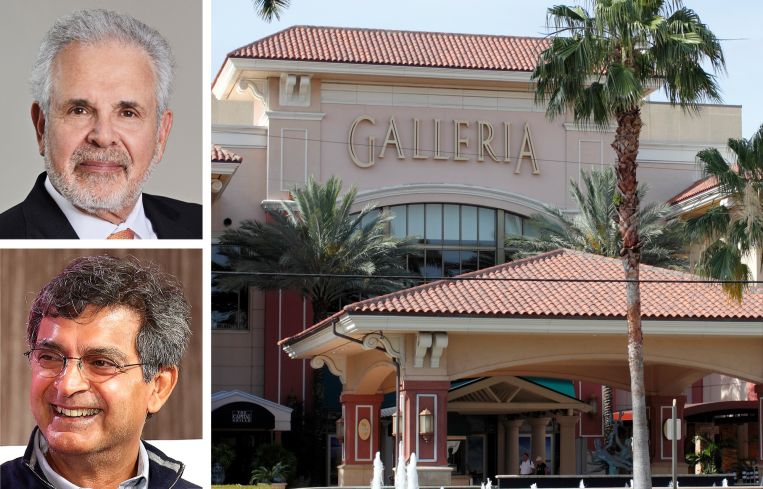Developers Face Opposition to Plans for Galleria Mall in Fort Lauderdale
By Julia Echikson October 30, 2025 1:00 pm
reprints
Just a month after acquiring the 32-acre Galleria Mall in Fort Lauderdale, Miami developer Russell Galbut and former WeWork CEO Sandeep Mathrani are already facing pushback from locals over their redevelopment proposal.
About 200 residents showed up at a meeting hosted by Fort Lauderdale Mayor Dean Trantalis this week to voice their opposition after the new owners filed plans that included as many as nine 30-story multifamily towers with about 3,000 apartments, as well as a 170-room hotel and some retail space, the Miami Herald reported.
The developers are using the Live Local Act, a Florida law that allows developers to bypass local zoning regulations if they meet certain benchmarks meant to boost the construction of affordable housing, such as setting aside at least 40 percent of units as workforce housing. Under the plan, 1,200 apartments would be priced within 120 percent of the area’s median income.
“Every square foot of retail will remain, and we’re investing more than $100 million to make it vibrant again,” Galbut said in a statement to Commercial Observer. “The vision is a true mixed-use community where people can live, work, and enjoy the same neighborhood, reducing traffic and creating new energy for the area. Our focus now is to continue working with the city and the community to restore The Galleria as an icon and a beacon for Fort Lauderdale’s future.”
Last month, a joint venture that included Galbut’s family office GFO Investments, Mathrani’s Atlas Hill Real Estate, and InSite Group purchased the 799,851-square-foot mall for $73 million. The shopping center was built in the 1980s at 2442 East Sunrise Boulevard, less than a mile from Fort Lauderdale’s beach.
In 1993, Keystone-Florida Holding Corporation purchased the asset for $25.1 million. For decades, the Galleria Mall was one of Broward County’s premier shopping destinations.
But as the retail apocalypse took hold in the 2010s, the occupancy rate dropped to 67 percent by 2023. Keystone-Florida had tried twice to redevelop the property into a mixed-use development, but faced fierce opposition from residents. Local officials eventually blocked the proposal.
Update: The story was updated to include a statement from Galbut.
Julia Echikson can be reached at jechikson@commercialobserver.com.



